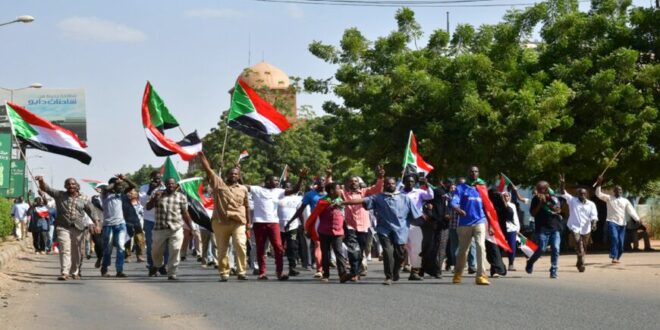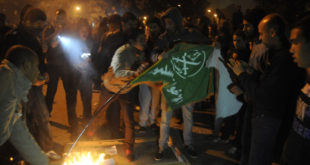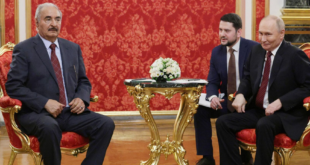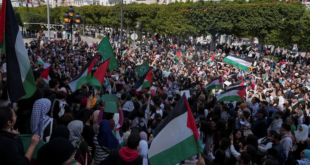While regional and international forces are pushing for a solution to the crisis in Sudan, Cairo is neutral between the civil and military components in an attempt to overcome the complexities of the political scene.
In a neutral diplomatic reaction to the coup carried out Oct. 25 by Sudanese army commander Lt. Gen. Abdel Fattah al-Burhan that overthrew those overseeing the transition to civilian rule, Cairo called on the Sudanese to reach a national consensus without offering any mediation initiative or expressing support for any party in the conflict.
After Burhan declared a state of emergency, dissolved the government and the Transitional Sovereignty Council, and suspended some provisions of the Constitutional Document, the Egyptian Ministry of Foreign Affairs issued a statement saying, “Egypt is closely following the recent developments in Sudan, as the security and stability of Sudan are an integral part of the security and stability of Egypt and the region.”
The statement further called on “all brotherly Sudanese parties to act responsibly, practice restraint, and prioritize the country’s interest and national consensus.”
Cairo’s statement disregarded any popular demonstrations in Sudan that protested against removing the civilian component at a time when several regional and international powers, namely the United States and the African Union (AU), have taken strict positions against the army overthrowing the civilian component, demanding measures to protect the democratic transition. The AU suspended Sudan’s membership Oct. 26, and the United States suspended the financial support it was supposed to provide to Sudan, amounting to $700 million.
Salah Halima, deputy chairperson of the Egyptian Council for African Affairs, told Al-Monitor, “The Egyptian position calls for restraint and constructive dialogue; nothing else can be said. The Egyptian authorities believe in the need to stand at an equal distance from all parties and support the democratic transition per the Constitutional Document.”
Halima added, “There are many economic and security problems in Sudan, foremost of which is the worsening situation in the east and the refusal of two armed movements to join the Juba Agreement for Peace, which undoubtedly reflects on Egyptian national security. But Egypt practices a disciplined policy without interfering in the internal affairs of neighboring countries. This is what it did before with Libya.”
The Sudanese foreign minister in Abdalla Hamdok’s dissolved government, Maryam al-Mahdi, said in press statements that Egypt has not contacted her. “We had good ties with the Egyptians and almost daily contact. … I do not understand why they are not communicating with the civilian camp in Sudan, although Egypt had always supported the transitional process.”
Although a phone call between Egyptian Foreign Minister Sameh Shoukry and US Special Envoy to the Horn of Africa Jeffrey Feltman tackled the political situation in Sudan following the military coup, Cairo was absent from a quadripartite statement issued Nov. 3 in which the Quad for Sudan, which includes Saudi Arabia, the United Arab Emirates, the United States and Britain, called for the full and immediate restoration of the transitional government in Sudan.
Speaking about Egypt’s failure to present an initiative to mediate between civilians and the military, Halima noted, “There are now many mediators, such as South Sudan, the Troika, the US and the AU, but Egypt may act, if it is asked to, in a framework that guarantees stability and a democratic and secure transition.”
Meanwhile, Egypt chairs the AU’s Peace and Security Council for November. In this context, Mohamed Gad, the permanent Egyptian representative to the AU, said in a press statement, “The developments in Sudan and Somalia are among Egypt’s priorities in the Peace and Security Council, in order to formulate an appropriate response, especially as they are sister countries of particular importance to Egypt and its national security. The situation in both these countries has wide repercussions on regional and continental security and stability.”
Ayman Abdel Wahab, a political expert at Al-Ahram Center for Political and Strategic Studies, told Al-Monitor, “The situation in Sudan is very complicated, as the transitional period has a lot of intertwining currents that make up the authority. I do not think that Egypt’s intervention, even by offering initiatives, would be feasible, especially since multilateralism exacerbates the conflict more than it helps reach solutions.”
Egypt and Sudan have grown closer since the fall of Omar al-Bashir’s regime in 2019. They signed the military cooperation agreement in March 2021 in which Cairo pledged to meet all of Khartoum’s requests in the military fields, at a time when some regional countries, such as Ethiopia, Somalia and Eritrea, are witnessing security and political turmoil — this has prompted Egypt to build and support the military institution in Sudan and enhance the combat capabilities of the Sudanese army.
Abdel Wahab said, “Egyptian cooperation with the armed forces was and still is within the framework of supporting the Sudanese state to face security challenges such as militia aggression and the border conflict with Ethiopia.”
He added, “Today, Sudan cannot take more conflicts amid the deteriorating economic conditions. The solution is within Sudan, and any effective initiative for settlement will not succeed unless the parties are ready for dialogue.”
Abdel Wahab stressed, “It is not possible to imagine the success of any initiative that comes through Egypt in light of the current situation in Sudan.”
During the transitional period in Sudan, Egypt was trying to provide emergency aid. Most importantly, it opened the Ain Sokhna Port to provide the Sudanese people with their urgent needs of medicines and strategic goods, after the closure of Port Sudan due to the unrest and protests in eastern Sudan against the government for more than a month.
Osman Mirghani, a political analyst and editor-in-chief of the Sudanese daily Al-Tayar, told Al-Monitor, “Egypt’s position on the developments in Sudan is purely diplomatic and even ambiguous. It seems that Egypt realizes how critical the situation is, and it would not want to be accused of trying to influence the internal situation to serve its own interests.”
He added, “The Sudanese people are trying to read Egypt’s position to see whether it supports the civilian or military rule, which is why the Egyptian decision-makers are being cautious.”
Mirghani noted, “The situation is still critical on Sudan’s part at the popular level and among the elites as well, and Egypt’s attempt to avoid stepping on anyone’s toes may exacerbate the situation.”
Cairo maintains its observer position without directly interfering or participating in any international or regional action until stability prevails and normal life is restored in Sudan. However, the United States may not support such a stance, as US State Department spokesperson Ned Price hinted in a press conference Nov. 3 at the importance of Egypt joining the Quad for Sudan: “The more we speak and act with one voice, the more our message — the clearer our message will be to those in Sudan.
 Eurasia Press & News
Eurasia Press & News




